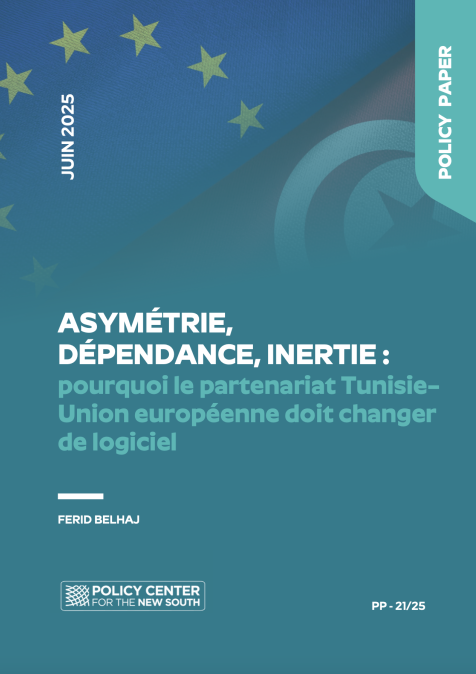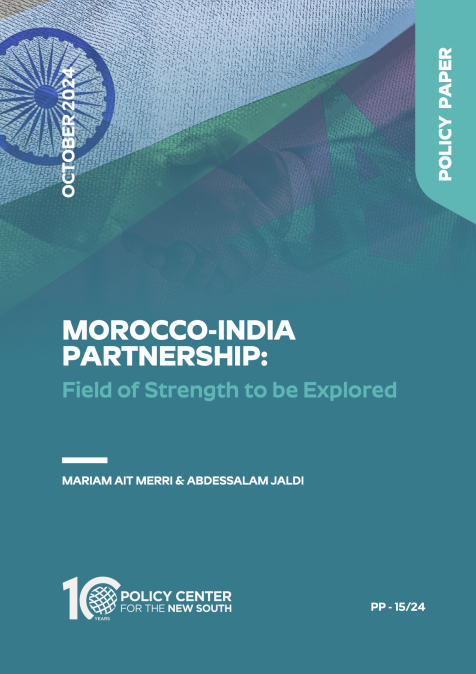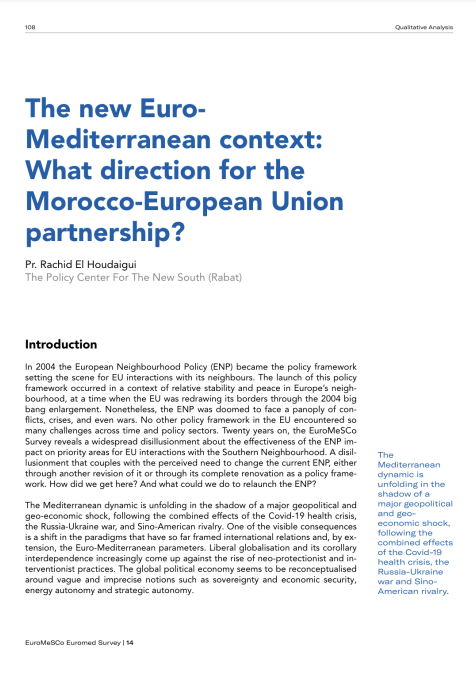Publications /
Opinion
In a more chaotic and critical Mediterranean security environment that is facing a huge geopolitical change, the NATO alliance has found itself challenged by rival states across the spectrum of conflict. Russia, which represents an instance of this change, has acquired for the first time in its modern history a proper permanent base in the Mediterranean. Also, other geopolitical changes such as proliferation of ballistic missiles among both state and non-state actors around the Mediterranean Sea hold key military and commercial transit points at risk ranging from the Bab-el-Mandeb, to the Bosporus, to Gibraltar. Given these challenges, NATO found itself in a situation that necessitates the launch of a partnership framework on new foundations. For this reason, NATO decided to establish a focal platform dealing with non-classified information and gathering national and military structures, professors, experts, international organizations as well as non-governmental organizations. Based at the Allied Joint Force Command Headquarters in Lago Patria Naples, this platform has been fully operational since December 2017.
NSD-S Hub acts as a virtual and physical forum with the goal of identifying the root causes of insecurity and instability and understanding the challenges facing the south. Its first mission is to build collaborative and holistic partnerships both by connecting allies, partners and non military entities and by establishing networks with academia and regional international organizations involved in this area. The mission of the Hub is based on Article 2 of the NATO Treaty, which states:
"The Parties will contribute toward the further development of peaceful and friendly international relations by strengthening their free institutions, by bringing about a better understanding of the principles upon which these institutions are founded, and by promoting conditions of stability and well-being. They will seek to eliminate conflict in their international economic policies and will encourage economic collaboration between any or all of them."
The highlighted key words reveal that the alliance adds to its military approach, a civilian and an academic one through four organizational bodies of NSD-S Hub : (1) The Knowledge Management and Engagement (KM&E), (2) the Comprehensive Research and Analysis Section (CRAS), (3) the Engagement Coordination Section (ECS), and (4) The Civilian-Military Engagement & Coordination Section (CME&CS).
In this context, three realities can be considered.
The first reality is that NATO seems to have included, in its matrix of cooperation with the southern shores, the strategic importance of Europe – the Mediterranean and African axis. The NSD-S Hub is not a typical command force nor a policy maker, this focal point seeks to meet at least two specific dire needs, which are to connect and to build trust with the southern shore of the Mediterranean Sea that includes strategic regions such as the Maghreb, the Middle East, the Sahel and Sub-Saharan African countries. The purpose is not to solve security issues by setting up policies, the purpose is to understand what stability and security measures can be taken beyond the Maghreb. It would be better for NSD-S Hub to take into consideration that the better understanding and better knowledge of this part of the world is directly related to the wise and objective choice of actors and partners beyond any political consideration or geostrategic game.
The second reality is that NATO has bartered its world view for a regional one where security, threats, and risks are viewed differently. This renewed regional view incorporates the historical, cultural, political and social components of the Mediterranean southern shores. The alliance additionally looks to achieve a comprehensive understanding of these multidimensional specifities, to build a relevant tailored and practical cooperation approach, and to bring Mediterranean southern partners into the planning activities of the NSD-S Hub with the purpose of building a security community, which is based on two pillars : reciprocity and complementarity.
The third reality is that via the NSD-S Hub, NATO has demonstrated a strong commitment to overcoming the issues of misunderstandings and misconceptions by consulting the numerous stakeholders from the southern Mediterranean. This participative approach allows NATO to spread the message that it is focusing on the topical drivers (economic, political, social, military and environmental drivers) of instability in the southern shores. In other words, the overriding message is that NATO is entering a new important phase forward towards a dynamic, modern NATO. But a question remains : is the Alliance really ready to adapt to new challenges, to provide security and to be a key player for both stability and well being in the southern Mediterranean region ?
NSD-S Hub could be a relevant tool to renew NATO’s engagement efficiently in the southern shores of the Mediterranean but only under two specific conditions : (1) achieving coherence between military and civilian approaches and (2) establishing a balanced and reciprocal partnership ecosystem based on shared values of peace, security, stability and prosperity and on a joint multi-layered and coordinated effort. Furthermore, there are also two effective requirements. First, the resources needed to succeed must be provided and second, the NSD-S Hub should not be directed to contain emerging powers in the Mediterranean.







